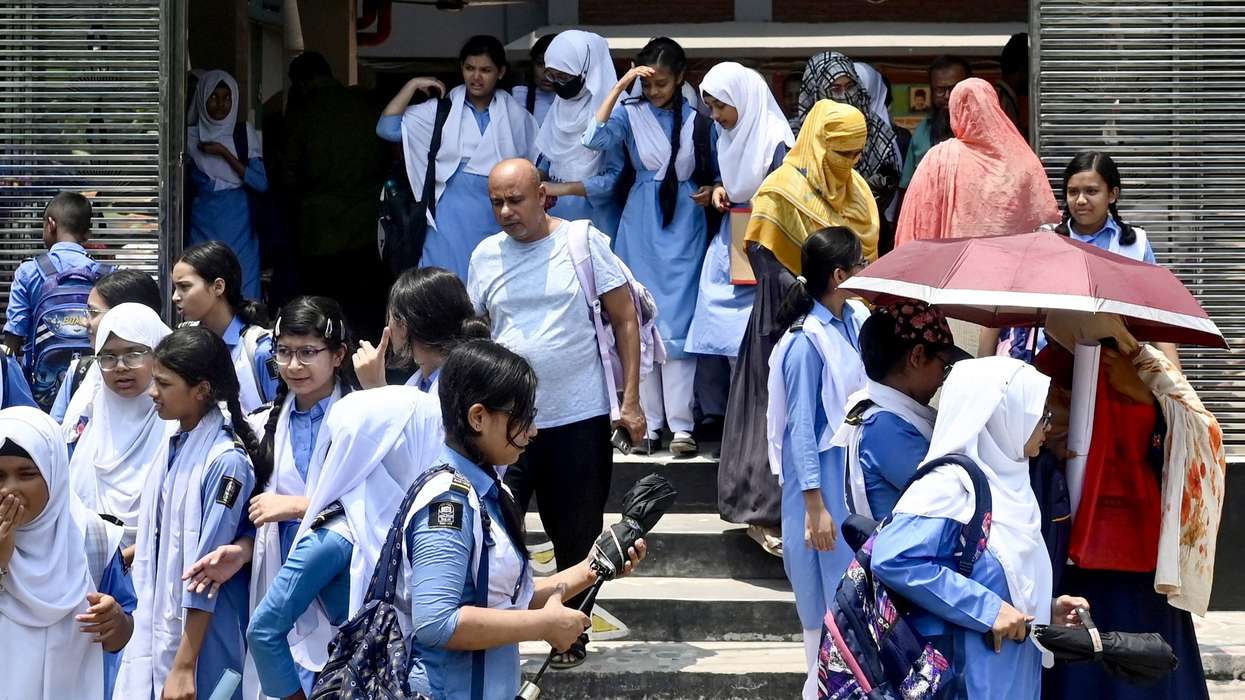SCHOOLS in Bangladesh reopened last Sunday (5) and classes continued last weekend after a searing heatwave a week ago that suspended lessons, as the country baked in temperatures that surged to well over 40ºC.
Bangladesh has wavered over reopening schools for some 33 million students amid pressure to prepare pupils for exams, even as the worst heatwave in seven decades sent temperatures as high as 43.8ºC last week.
Many people died across the region, and experts warned the heat could exacerbate inequalities, and widen a learning gap between developing and developed nations in the tropics.
Bangladesh, which follows the Islamic work week from Sunday to Thursday, will hold classes on Saturdays until further notice, the education ministry said. The education minister, Mohibul Hasan Chowdhury, has said schools would open on Fridays if needed to complete the curriculum.
Parents welcomed the decision. “Children don’t want to study at home. This will help them make up for the loss,” said Fatema Akhtar, who was waiting to pick up her young daughter outside a school.
Scientists have said climate change is causing more frequent, severe and lengthy heat waves during summer months.
The UN children’s agency has estimated that one in three children, or nearly 20 million children, in low-lying Bangladesh bear the brunt of such climate change every day.
Many Bangladeshi schools “don’t have fans, the ventilation is not good, and they might have tin roofing which does not provide good insulation”, said Shumon Sengupta, the Bangladesh country director for the nonprofit Save the Children.
In Bangladesh last year, schools were closed for six or seven days, said Sengupta.
“But this year, they are saying it might be closed for three to four weeks,” he said, as May is often the hottest month in south Asia.
Even if students continue attending classes during heatwaves, their education is likely to suffer. High temperatures slow down the brain’s cognitive functions, lowering pupils’ ability to retain and process information. Other research suggests excessive heat in the tropics can also impact a child’s education even before birth.
Heat could exacerbate inequalities, widening learning gaps between developing nations in the tropics and developed countries, experts told Reuters, and even between rich and poor districts in wealthy countries.
US high schoolers, one 2020 study found, performed worse on standardised tests if they were exposed to higher temperatures in the year leading up to the exam.
The research, published in the American Economic Journal, found that a 0.55ºC warmer school year reduced that year’s learning by one per cent. Much of that impact disappeared in schools that had air conditioning, said study co-author Josh Goodman, an economist at Boston University.
Between 40 per cent and 60 per cent of US schools are thought to have at least partial air conditioning, according to various surveys.
Schools without it are often found in poorer districts which already trail their wealthier counterparts academically.
Goodman and his colleagues found similar learning outcomes tied to heat when they looked at standardised test data in other countries.
“When (students in) these places experience a year with more heat, they appear to have learned less,” he said.
But sending children to overheated schools could make them ill.
South Sudan already this year closed its schools to some 2.2 million students in late March when temperatures soared to 45ºC.
Thousands of schools in the Philippines and in India followed suit in late April, closing classrooms to more than 10 million students.
Children in southeast Asia exposed to higherthan-average temperatures in utero and early in life obtained fewer years of schooling later in life, a 2019 study in the Proceedings of the National Academy of Sciences found. (Agencies)













